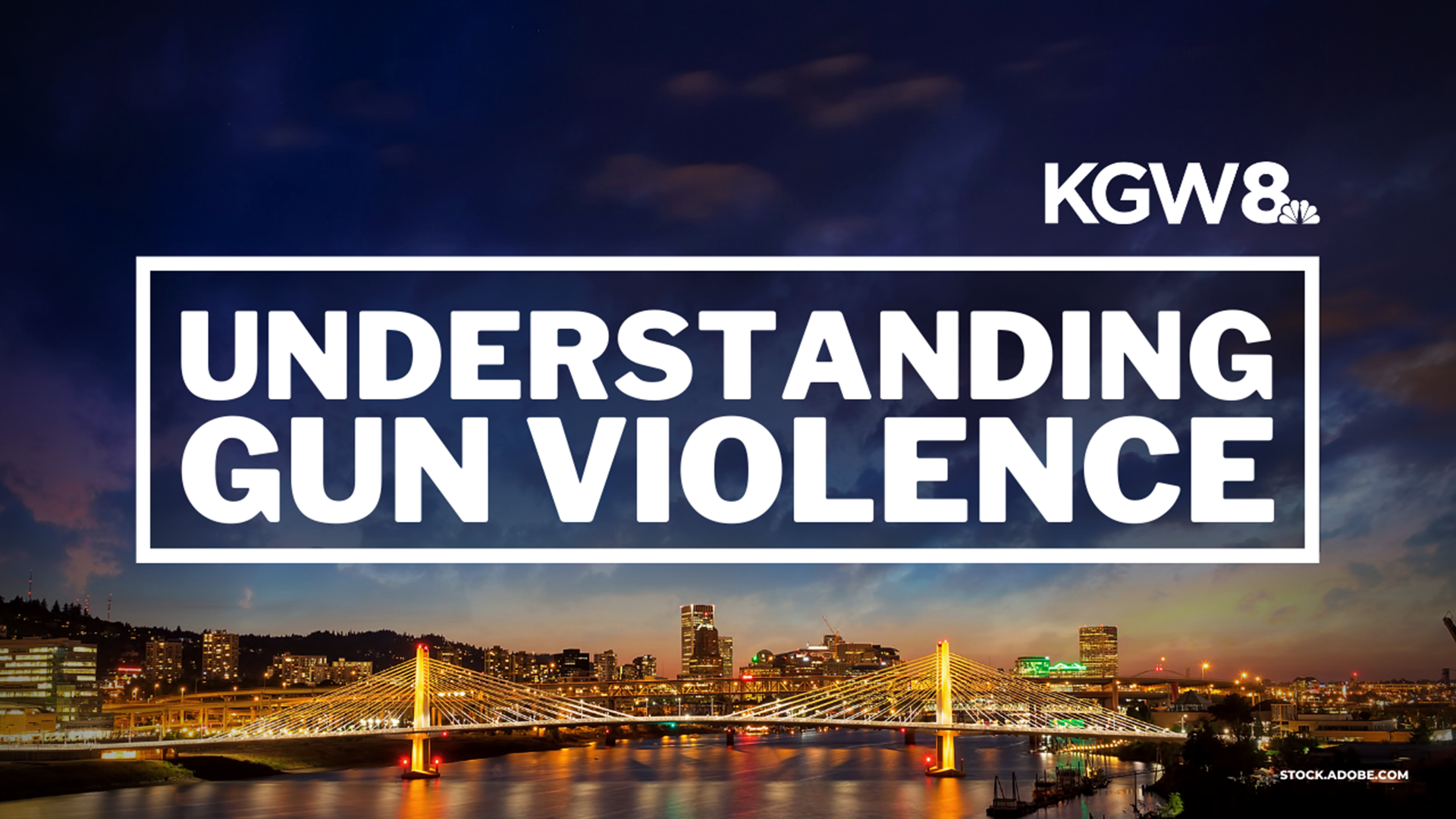PORTLAND, Ore. — Gun violence is on the rise across the city of Portland.
In 2019, Portland had 389 shootings, according to data from the Portland Police Bureau. Just one year later, that number more than doubled, skyrocketing to almost 900.
The violence has continued in 2021. Through May, police have reported 453 shooting incidents. At the current rate, Portland will have more than 1,000 shootings by the end of this year.

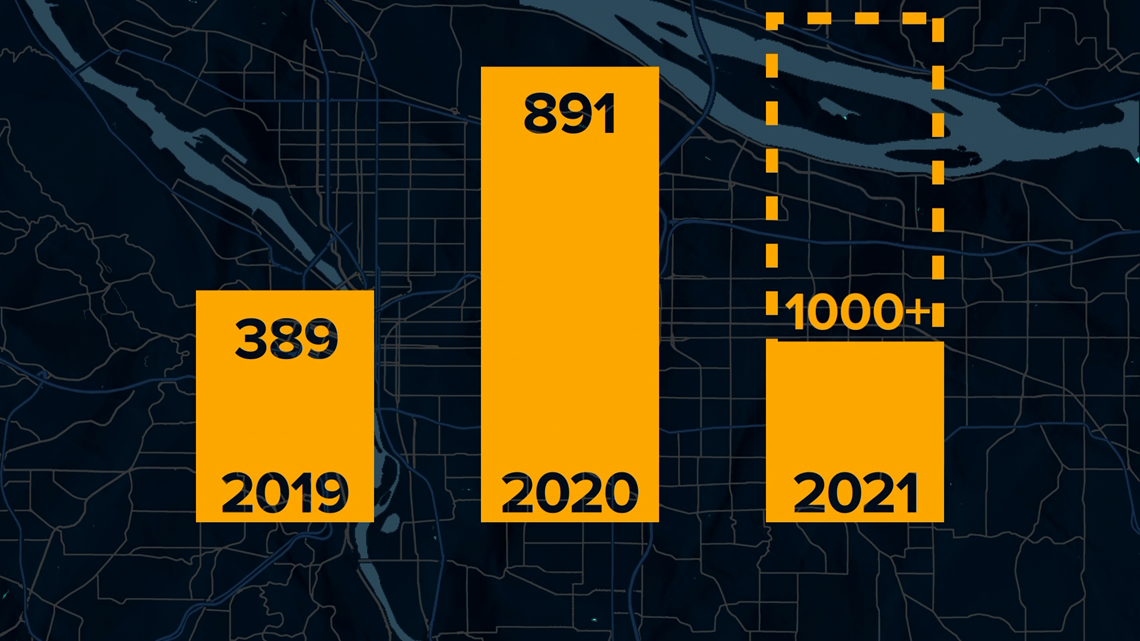
All three Portland police precincts have seen a rise in gun violence but data shows the neighborhoods most impacted are in north and east Portland.
In 2020, there were 438 shootings in Portland's east precinct, almost half the total for the entire city. Of those, more than 200 took place in just three neighborhoods: Centennial, Hazelwood and Powellhurst-Gilbert.
As shootings increase, so do homicides. Through the first five months of 2021, there have been 38 killings. Over the same period last year, there were six.
But what has led to this historic rise in gun violence and what can be done about it?
KGW Investigates spent the last two months talking to families, law enforcement officers and community leaders to try and answer those questions. Everyone we spoke to agreed on two things: the pandemic has played a significant role and long-term solutions will require investment in communities.
Portland is not the only city that saw shootings increase in 2020. All across America, communities saw an uptick in gun violence.
Experts we spoke to say it's hard to attribute the rise in violence to just one thing. More likely, a variety of factors in an unprecedented pandemic year have all contributed in distinct ways.
Kieran Ramsey is the special agent in charge of the FBI field office in Portland. The federal agency stepped in to support Portland police by leading a new Metro Safe Streets Task Force back in April.
Ramsey says there are no easy answers but the pandemic and access to guns are likely contributing factors.
"It's not just a public safety problem, it's also a public health crisis and you have another public health crisis that's laying on top of all of this. That's caused a lot of trauma to our entire society at this point. But you add to that the availability of guns and the willingness of people to use these guns in the most horrific and tragic way."
The FBI has offered personnel, resources and funding to support Portland police in their effort to combat gun violence.
Ramsey says the current staffing shortage at the Portland Police Bureau has made it harder to investigate and respond to shootings.
"I think we're past the conversation of them having to do more with less. Now it's a conversation of them having to do less with less."
You'll see FBI agents on every shooting scene in Portland, Gresham and Multnomah County, all are part of the FBI's safe streets task force.
Portland police staffing shortage
As gun violence surges across the city, the bureau tasked with investigating those crimes faces a staffing crisis. Since July 2020, the Portland Police Bureau has lost almost 130 sworn members — that includes officers, detectives and other command staff.
Of those who left the bureau, 75 retired and 54 resigned. To put that in perspective, the year before saw six retirements and four resignations.
Today, the bureau has 813 sworn members, over 100 less than a year ago at this time. Of those, 554 are officers, 54 of whom are still in training. Police say it's the lowest number in more than 25 years.

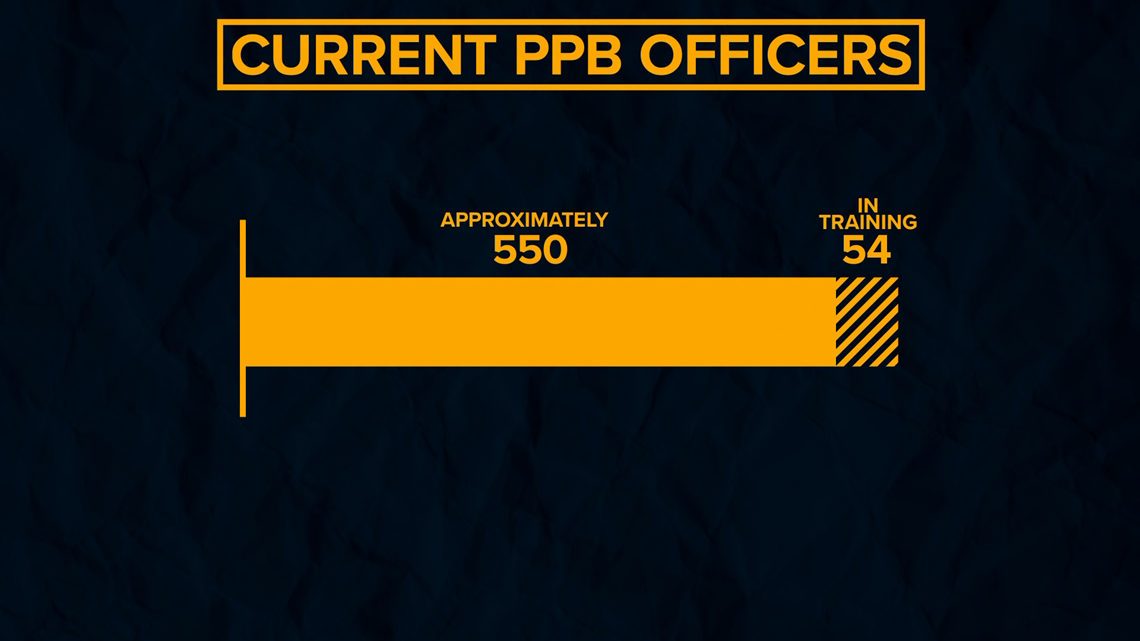
The bureau says it has only hired eight officers since last July and over 100 sworn positions remain unfilled due to budget cuts.
Last June, Portland Mayor Ted Wheeler disbanded the Portland Police Bureau's gun violence reduction team (GVRT). The team was tasked with investigating shootings but critics said it led to the over-policing of people of color.
The FBI will lead the new Metro Safe Street Task Force formed in April, a number of local agencies are also involved. The group will concentrate its efforts on investigating gun violence in and around Portland.
The Impact
Neighborhoods across the Portland metro area have seen an uptick in gun violence, but communities of color have been disproportionately impacted.
Cash Carter's son Jaelin Scott was shot and killed at Gateway Discovery Park on August 27, 2020. He was just 16 years old.

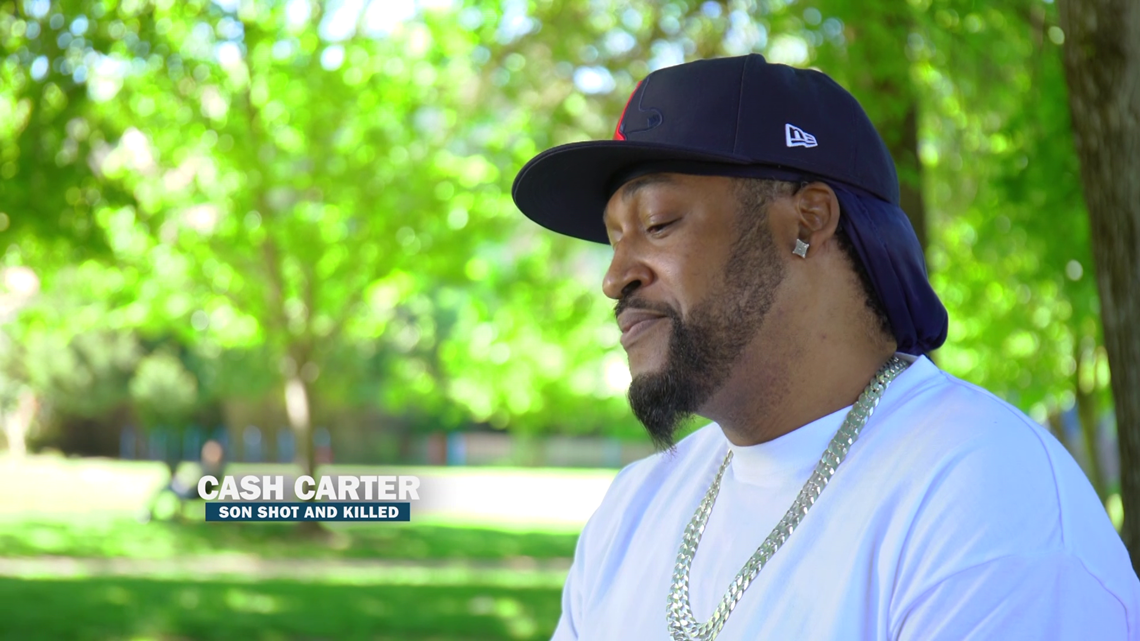
It's been nearly a year since Jaelin was killed but his death remains unsolved. Police have not released any suspect information and it's unclear whether his killer will be held accountable. For Carter, breaking the cycle of violence will require cooperation with law enforcement but he acknowledges that can be difficult.
"As far as tips and leads and information like that? I can understand that there are people that don't want to say anything...out of fear of retaliation, out of fear that the police might, you know, say something that's not true to them or about them. But here's the thing, if you love Jaelin, if you cared about Jaelin and you know something, don't be afraid to say something about it."
"It's very important just because you don't want to have people thinking that these things can be done and you won't be held accountable."
Jennifer Adams is the sister-in-law of Adam Kekoa Adams. Adams and his brother-in-law Frank Gouland were shot and killed outside their home on January 17, 2021.

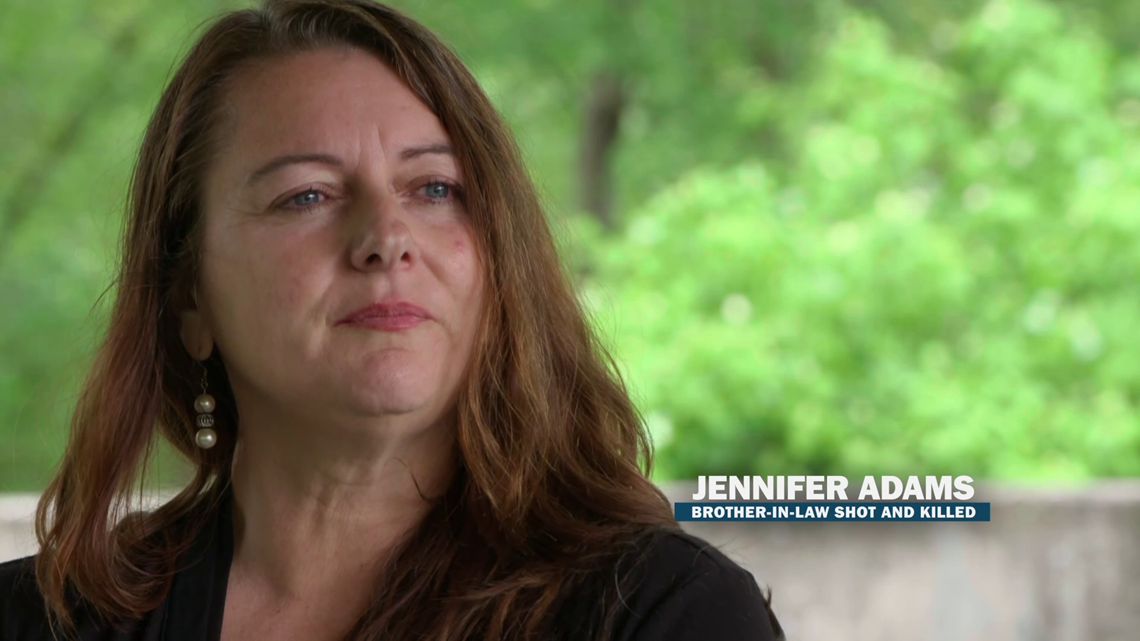
For Jennifer, what's left behind makes her brother-in-law's death all the more painful. Adams had three children and Gouland left behind a young daughter. Jennifer Adams said neither men had gang ties or any enemies at all.
She said the two men were outside in their yard hanging out when it happened but because they were shot, people assume they were somehow to blame. It's something Adams wants to keep top of mind when we talk about those impacted by gun violence.
“I think empathy is important and really looking at people as human beings and the thing is they were victims. It does seem like some people assume that they were automatically part of the problem or in the wrong, and that's not the case.”
Adam Kekoa Adams and Frank Gouland's deaths remain unsolved. Portland police have not identified any suspects.
Crime Stoppers of Oregon offers cash rewards of up to $2,500 cash for information, reported to Crime Stoppers, that leads to an arrest in any unsolved felony crime and tipsters can remain anonymous.
Visit the App Store and download P3 Tips to submit secure and anonymous tips.
Online at https://www.p3tips.com/823
Call 503-823-HELP (4357)
What’s the solution to Portland’s gun violence?
Activists, youth mentors and community leaders agree there is no easy answer to stop Portland’s gun violence. But those who work with people closest to the crisis and have decades of life experience suggest there are viable solutions — if the community is willing to make the investment.
Darryl Turbin, Co-Principal for social justice firm, The Pinwheel Group and co-founder of H.E.A.T. program

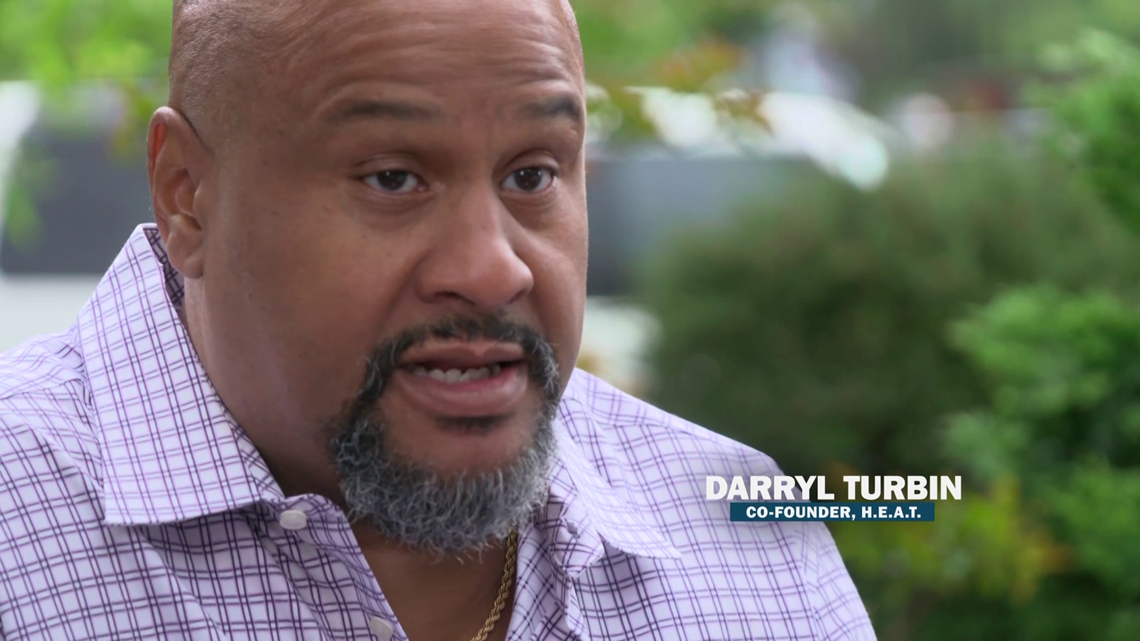
Turbin believes the immediate solution is for violence interrupters (peer mentors often with a criminal history or affiliation with a gang) to identify and intervene in conflicts. The work is dangerous and requires people with real, life experience to help steer others away from trouble.
“We can probably solve stop the gun violence today. If this city would invest more in the resources that can reach these young people who are doing these shootings. It's not going to be the police. It's going to be people who have life experience, who maybe have had some affiliation with the lifestyle and street organization experience, maybe have served time in the criminal justice system. It's those kinds of people that can sit these young men down and say, ‘Hey, can we just stop for this weekend?”
Bretto Jackson, Leaders Become Legends

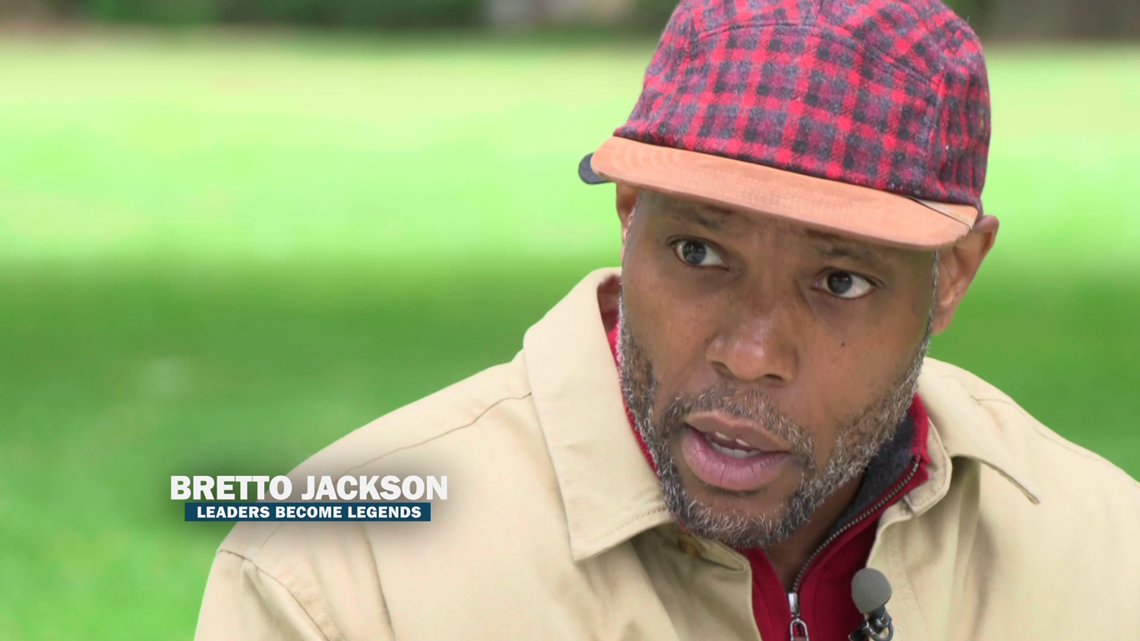
Jackson works as a youth mentor. He helped create Leaders Become Legends, an organization that provides training and job placement for young men.
Jackson feels people will stop shooting if they have opportunity- because intense mentoring, community programs, job training and job placement help young men realize there is another way.
“The opportunities are important because it gives guys hope. You can provide for your family or provide for yourself, save and then learn how to invest. And once you save, you tend to shift your focus from being active in the streets, into being more active in the community and for your family.”
“And so what I try to do is get close to a guy who's close to another guy and maybe get some influence going. Just think- if we get one of these young guys to do something positive and they control a bunch of other guys who look up to them, little shooters- what impact that'll make.”
Royal Harris, community activist, organizer of March Against Murder

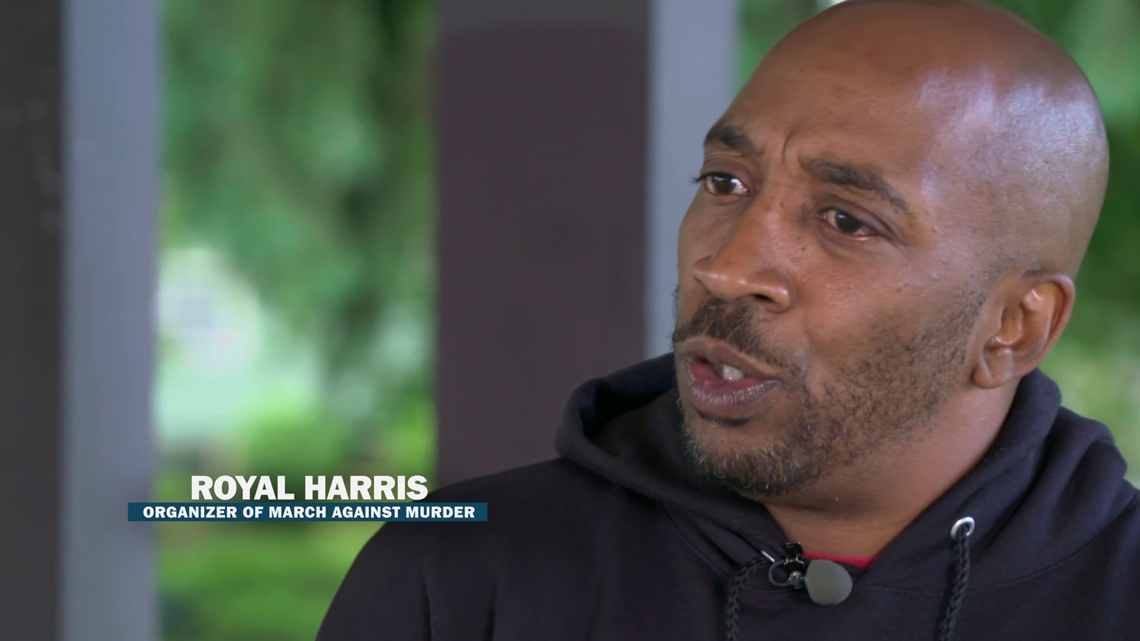
In the short-term, Harris agrees that intervention from people with lived experience can help bring a cease fire. Looking long-term, Harris thinks our community must change school curriculum to help teach conflict resolution.
“I don't want the whole conversation to be encapsulated in the violence that comes out of young Black men shooting each other. If we take it upstream, the real solve is- How do we redress the fact that American culture for over 275 years has legitimized and romanticized lethal force as a way to resolve conflict? We do it in music. We do it in history books. We do it in art. We do it in so many ways."
“And so this is bigger than just young Black men. Maybe that was the flashpoint. Maybe that's what I got you to listen, but now that I got your attention, it's not cool in any form.”
Erika Preuitt, Director of the Department of Community Justice

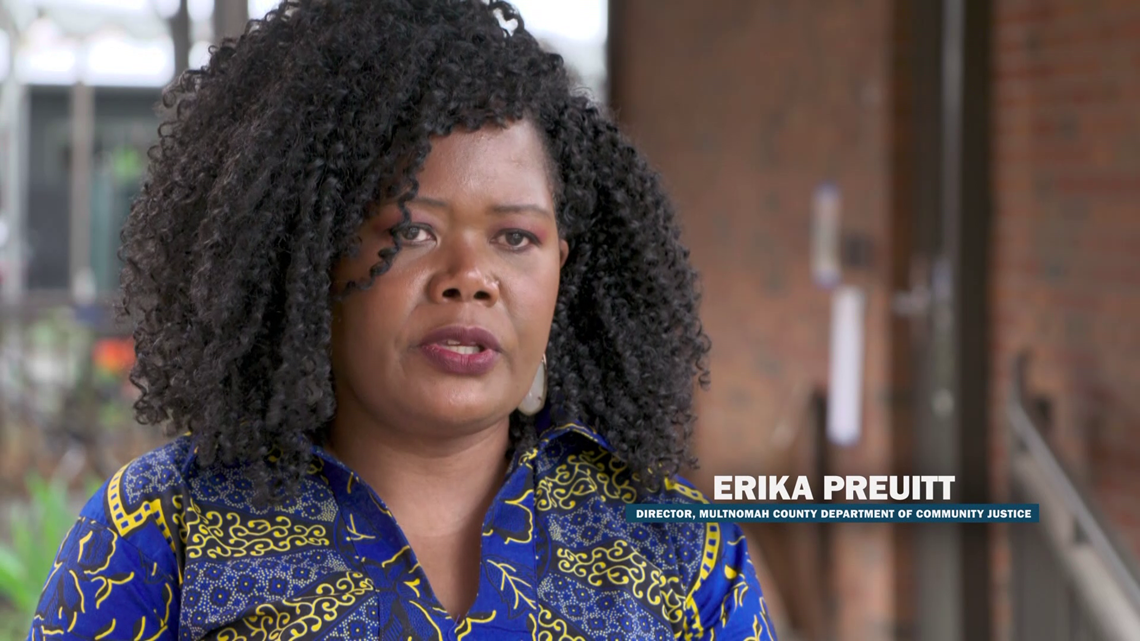
Preuitt has spent decades with DCJ, including the Adult Gang Unit as a Probation and Parole Officer. She believes stable funding for community-based organizations and law enforcement will help reduce gun violence in Multnomah County.
“I think that there's a community solution and I also believe that there is a law enforcement solution. There are resources that are needed on both sides, but I think what's most important is the collaboration with the community and law enforcement, as well as the healing.”
“We've been in a place where we've been talking about, defunding law enforcement, defunding criminal justice, even defunding probation and parole where I work. Our systems need to do better by our communities. We we need to listen to their voices so that we can have legitimacy and credibility, but I also believe that we need to keep our community safe and we need the resources to do that.”

